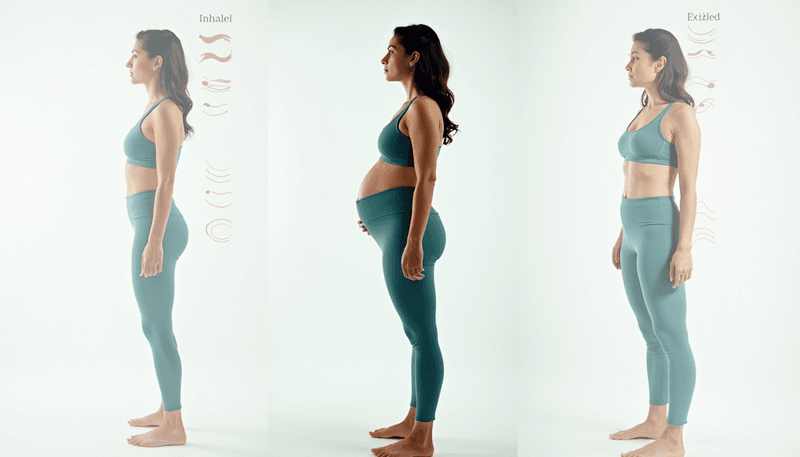Mindful Living Eases Cancer Treatment Effects

When Jane removed all the mirrors from her house because she couldn't bear to look at her surgery scars, she never imagined that learning to breathe mindfully would help her find peace with her changed body. This groundbreaking research reveals how mindfulness-based stress reduction (MBSR) offers hope for cancer patients struggling with treatment side effects, but its findings hold valuable lessons for anyone dealing with stress, sleep issues, or body image concerns.
The Power of Mindful Breathing for Better Sleep
The research showed that 46.2% of participants were taking sleeping pills before starting MBSR training. Through consistent practice of mindful breathing exercises, many reported significant improvements in their sleep quality without medication. The science behind this is fascinating - mindful breathing activates our parasympathetic nervous system, which naturally promotes relaxation and better sleep.
"When I touched the wound of my mastectomy, I was very low self-esteem. I wanted to cry every night, but through breathing adjustment and body scans, it seemed that the sadness gradually diminished." - Abby, study participant
Think of your mind as a snow globe - when shaken up by stress and anxiety, your thoughts swirl chaotically. Mindful breathing is like letting the snow settle, allowing clarity and calm to return naturally. Here's how you can practice:
- Start with just 5 minutes before bed
- Focus on the sensation of breath entering and leaving your body
- When thoughts arise, acknowledge them without judgment and return to your breath
- Gradually increase duration as you become more comfortable
Building Body Acceptance Through Mindfulness
One of the most profound insights from this study was how MBSR helped participants develop a healthier relationship with their bodies. While the study focused on cancer patients, the principles apply to anyone struggling with body image issues.
The practice works by cultivating what researchers call "reperceiving" - stepping back from automatic negative thoughts to observe our experiences more objectively. This creates space between us and our self-critical thoughts, allowing for more self-compassion.
What thoughts arise when you look in the mirror? Can you observe them with curiosity rather than judgment?
Practical ways to incorporate body-aware mindfulness:
- Practice body scan meditation, moving attention slowly from head to toe
- Notice physical sensations without labeling them as good or bad
- Use gentle movement practices like mindful walking or stretching
- Express gratitude for what your body can do, rather than focusing on appearance
The Healing Power of Mindful Community
An unexpected finding was how group practice amplified the benefits of MBSR. The research revealed that sharing experiences and practicing mindfulness together created a supportive environment that enhanced individual progress.
Consider this like learning a new language - while you can study alone, practicing with others accelerates learning and provides motivation to continue. The social aspect of mindfulness practice can:
- Create accountability
- Provide emotional support
- Offer different perspectives on common challenges
- Build lasting connections with like-minded individuals
"We can all help ourselves. Mindfulness courses help us to gradually understand that we must rely on ourselves to solve problems and must focus on the present. All difficulties can be overcome over time." - Rebecca, study participant
Key Implementation Tips:
- Start small with 5-10 minutes daily
- Choose one technique to focus on initially
- Practice at the same time each day to build habit
- Keep a mindfulness journal to track your experience
- Consider joining a local mindfulness group or online community
The research shows that consistent mindfulness practice can lead to significant improvements in sleep quality, body image, and emotional well-being. While the study focused on breast cancer patients, these benefits are accessible to anyone willing to invest time in developing mindfulness skills.
Your journey with mindfulness doesn't need to be perfect. As one study participant noted, "I forgot to do mindful breathing at the beginning... but I was being able to absorb the lessons later." The key is to approach the practice with patience and self-compassion.
Which aspect of mindfulness practice resonates most with you? Could you commit to trying it for just 5 minutes tomorrow?
Take the first step today by choosing one mindfulness technique from this article and practicing it for just five minutes. Your future self will thank you for starting this journey toward greater peace and well-being.

Olivia Rose Chen-Martinez
Olivia Rose Chen-Martinez is a seasoned health and wellness writer with a focus on women’s health issues, including PCOS, perimenopause, and holistic wellness. With a background in Journalism and Public Health from UC Berkeley, Olivia draws on over 15 years of writing experience to deliver empathetic, research-backed insights. Her work blends personal anecdotes and actionable advice, resonating with readers seeking accessible and trustworthy information. Based in Austin, Texas, Olivia is also a certified yoga instructor and a dedicated advocate for balanced, integrative approaches to women’s health.







